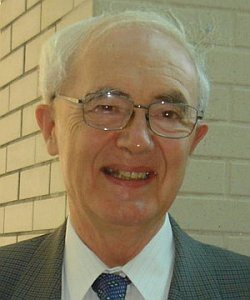
Featured Session - International Conference 2016
Back to Basics for the 21st Century: Language Learning as Memorization
When we talk about language learning and teaching, the terms "memory" and "memorization" are most often associated with conscious learning, such as learning word lists or rote-learning of patterns. In cognitive psychology, however, the terms cover a much wider range of phenomena. Important themes include the distinction between declarative memory (e.g., for discrete items) and procedural memory (e.g., for rules and patterns); intentional memory (which involves conscious processing) and incidental memory (which is usually unconscious); shallow and deep levels of processing (which involve varying degrees of meaningfulness and personal relevance); and massed practice (in one long session) versus distributed practice (in which the same total time on task is distributed over intervals). These concepts and distinctions have relevance for how we learn and teach language. This paper will explore some of the implications for teaching that might result from viewing language learning from the perspective of memory research.
_______________
Invited Second Session
Time Past, Time Present, Time Future
"Time present and time past are both perhaps present in time future, and time future contained in time past." These famous words are also an apt description of the renewal process in TESOL: In the light of experiences in time past, we develop principles which exist in time present and lay the basis for activity in time future; after this activity has occurred, it becomes contained in time past ... and so the cyclical process continues. In this process, old ideas take on new significance within new conceptual paradigms. This presentation will discuss a teacher development activity that incorporated this renewal process into a collaborative learning task. Chinese pre-service teachers first identified key contributions of nine "pet methods" from the past. They also reflected on the "postmethod" principles proposed by TESOL scholars. Based on these sources and filtered through their own experience as learners, they worked collaboratively (in "reverse snowball" mode) to formulate context-free principles for their own future context-sensitive pedagogy. More on the rationale for this learning activity is at: http://www.elted.net/uploads/7/3/1/6/7316005/2__vol.19__littlewood_.pdf
_______________
Biographical Sketch
Bill Littlewood worked in secondary schools and teacher education in the UK before moving to Hong Kong, where he has worked at tertiary institutions and is currently Honorary Professor at Hong Kong Baptist University. He has published widely in applied linguistics and language teaching. His books have been used widely in teacher education and translated into several languages, including Korean.
_______________
Resources on the Web: William Littlewood
Profile: Hong Kong Baptist University
http://lc.hkbu.edu.hk/staff_bill.php
Research Paper: ELTED Journal
Task-Based Learning in Language Teacher Education http://www.elted.net/uploads/7/3/1/6/7316005/2__vol.19__littlewood_.pdf
See the full list of Major Speakers at the KOTESOL International Conference at https://koreatesol.org/ic2016/Major-Speakers


